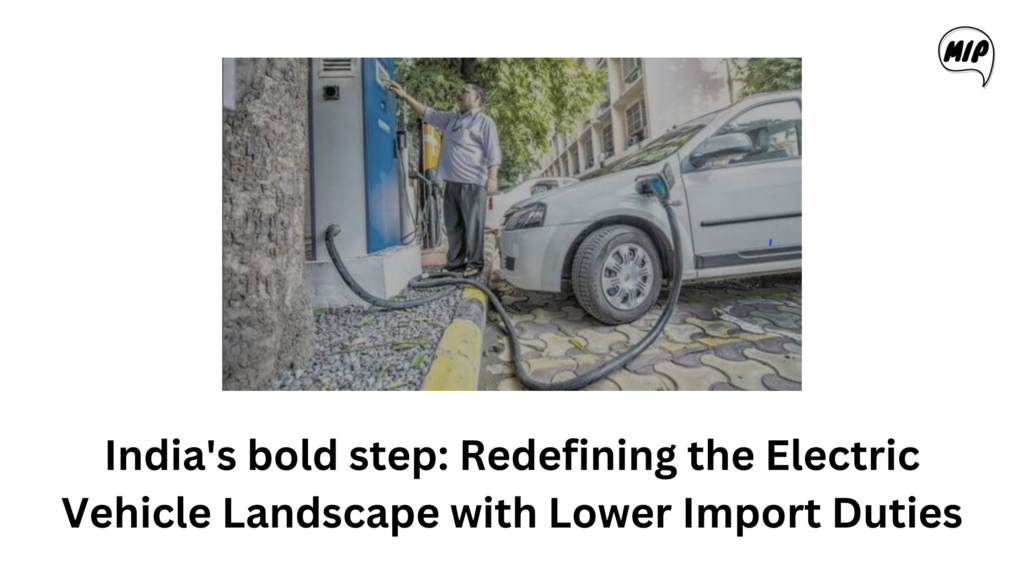
In a recent development, the Indian government is contemplating a significant reduction in import duties on electric vehicles (EVs), offering a glimmer of hope for negotiations with American EV giant Tesla.
Reports suggest that a new national EV policy might slash the current 70% import duty on EVs priced below $40,000 to a more accessible range of $25,000-$35,000, accompanied by a reduced tariff rate of 15-30% for this segment. This move, while not entirely eliminating the duty as Tesla advocated, presents a pragmatic middle ground.
Under the proposed policy, EV importers benefiting from these reduced rates would need to initiate manufacturing operations in India within the next two to three years. Failure to comply with this condition would result in the government revoking the import benefits. This approach aims to strike a balance, ensuring revenue for the government while creating space for future adjustments.
For Tesla, this policy shift could potentially pave the way for the company to explore the Indian market more actively. With lower tariff imports, Tesla could attract luxury car enthusiasts, providing an opportunity to expand its presence in India.
Currently, the majority of India’s four-wheeler EV market operates at lower price points, a sector where companies like Tata Motors have excelled. With the market expected to double in size this year, there is an opportunity for dominant EV sellers to achieve economies of scale.
This policy change also prompts a broader reevaluation of India’s approach to its automotive industry. By reducing protectionist measures, especially for EVs, India can stimulate domestic sales by encouraging low-cost production. Unlike traditional automobiles, the EV sector offers a unique opportunity for open-market experimentation due to its distinct cost dynamics.
With relatively affordable EVs on Indian roads and abundant lithium reserves that could provide a battery advantage, India has the potential to establish itself as a global hub for EVs.
The question now arises: Can India seize this opportunity to become a frontrunner in the global EV market? With strategic policies and initiatives, Indian brands might even challenge international competitors like Tesla by offering EVs at significantly lower prices, making the dream of a thriving domestic EV industry a tangible reality.